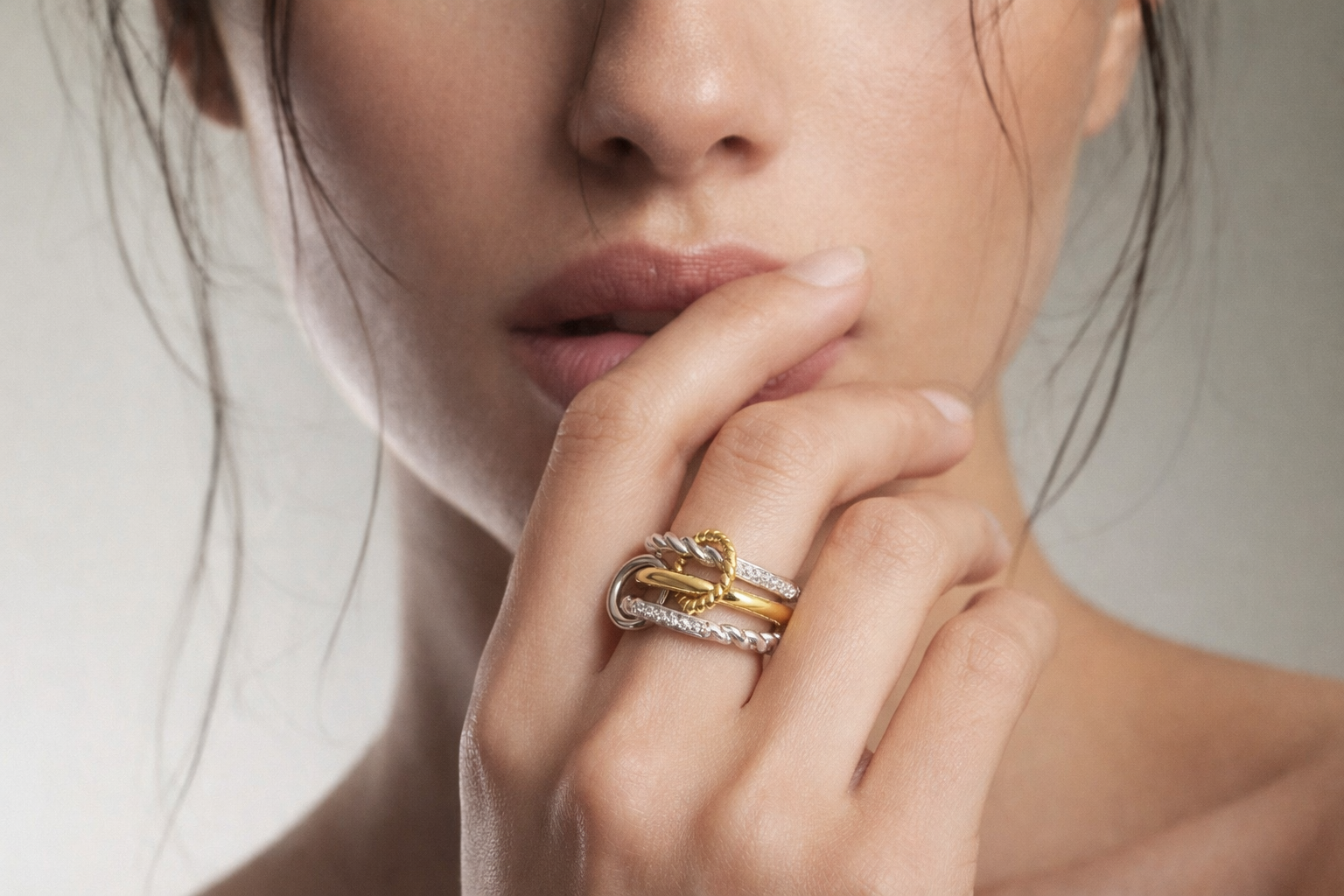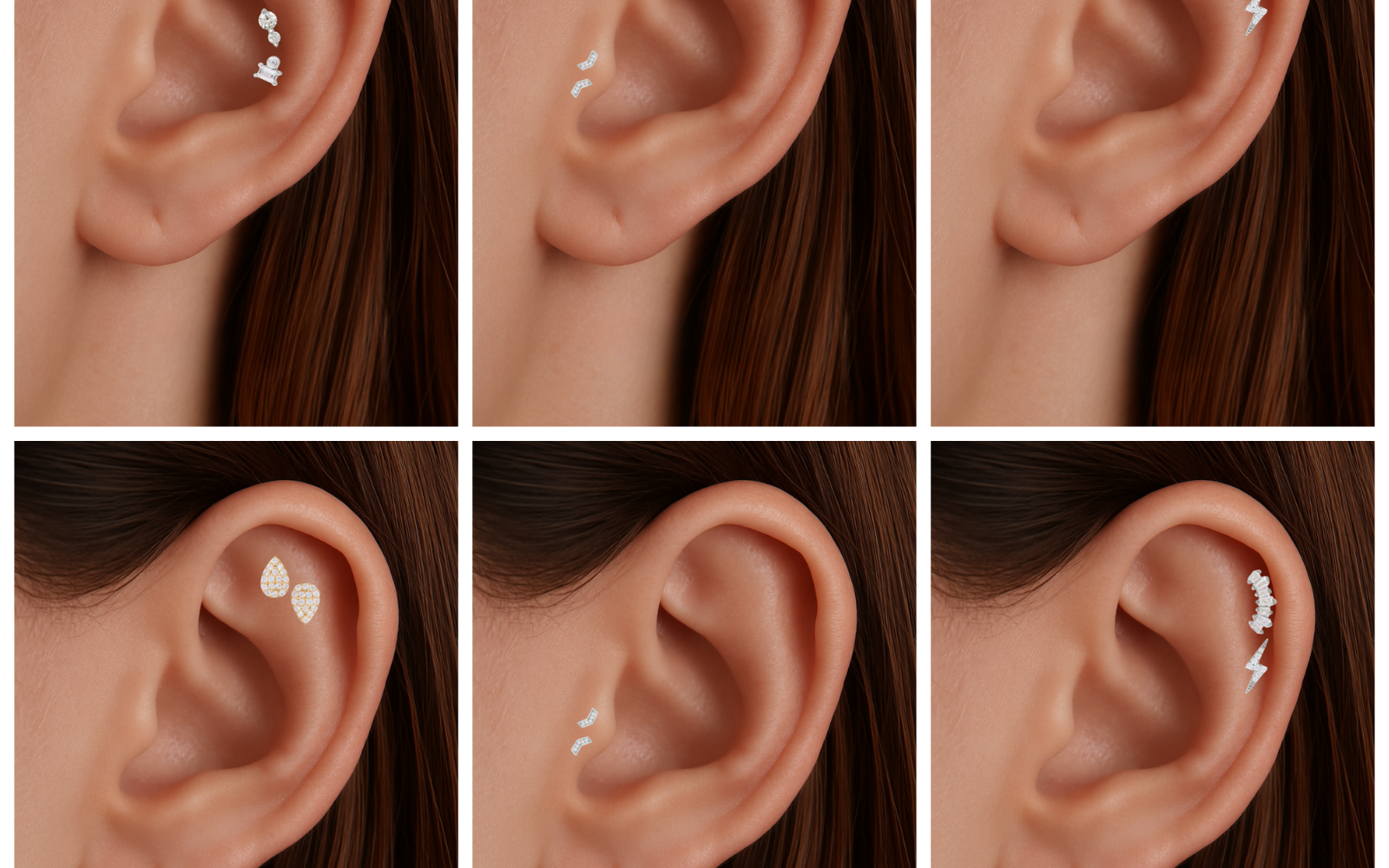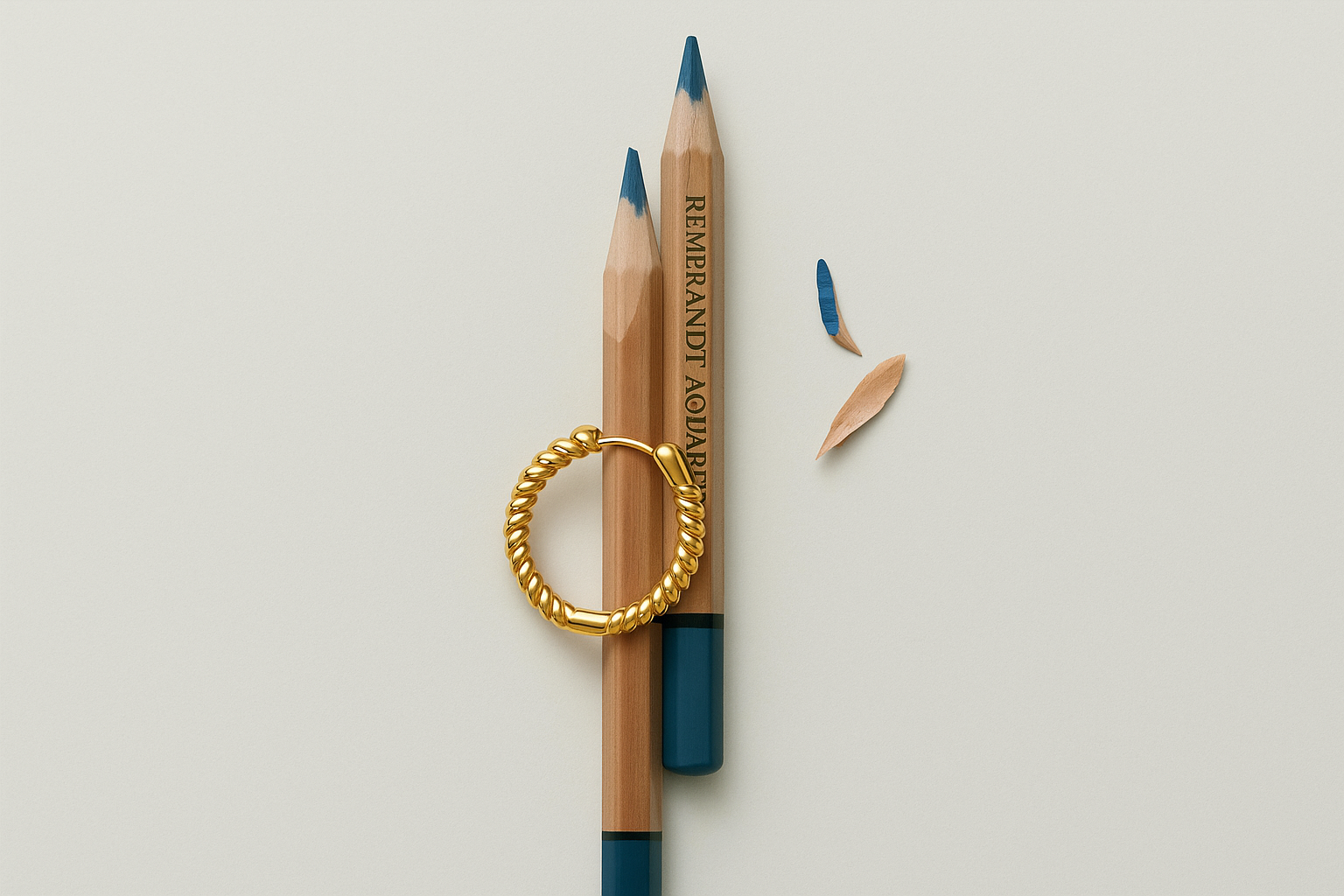Piercing Aftercare Tips for a Speedy Recovery
Your ultimate guide to ensuring a quick and safe healing process.
Build Your Ear StoryGetting a new piercing is an exciting way to express your style and individuality.
However, ensuring your piercing heals properly requires proper care and attention. Whether it’s your first piercing or one of many, understanding the dos and don’ts of aftercare is essential for a speedy recovery. In this guide, we’ll walk you through the best piercing aftercare tips and answer common questions to help you enjoy your new jewellery without any hiccups.
- Keep It Clean, but Don’t Overdo It
Cleaning your piercing is vital, but overcleaning can irritate the area. Use a saline solution or a piercing aftercare spray twice daily to keep the site free of bacteria. Avoid using alcohol, hydrogen peroxide, or ointments, as these can dry out the skin and delay healing. - Hands Off Unless Necessary
Your hands carry bacteria, so avoid touching your piercing unless you’re cleaning it. Always wash your hands thoroughly with soap and water before handling your jewellery. - Avoid Rotating Your Jewellery
Contrary to outdated advice, twisting or turning your jewellery can damage the healing tissue. Let your piercing heal undisturbed. - Stay Away from Swimming Pools and Hot Tubs
Submerging your fresh piercing in water—especially chlorinated or untreated water—can introduce bacteria, increasing the risk of infection. Wait until your piercing is fully healed before diving in. - Choose Hypoallergenic Jewellery
Opt for materials like titanium, surgical steel, or 925 sterling silver. These materials reduce the risk of allergic reactions and promote faster healing.
How to Care for Piercings at Every Stage of Healing
Initial Healing Phase (0-4 Weeks)
- Clean Twice Daily: Use saline solution to clean the area gently. Spray directly or use a cotton pad soaked in saline.
- Protect the Area: Avoid bumping or snagging your piercing on clothes or bedding.
- Avoid Makeup and Skincare Products: Keep lotions, creams, and makeup away from the piercing.
Mid-Healing Phase (4-12 Weeks)
- Monitor for Irritation: Watch for redness, swelling, or discharge. A slight crust is normal, but excessive pus or pain might indicate an infection.
- Continue Cleaning: Stick to your cleaning routine to ensure complete healing.
- Be Patient: Even if the area looks healed, internal healing takes longer.
Full-Healing Phase (3-12 Months)
- Ease Into Changing Jewellery: Wait until the piercing is fully healed before swapping out jewellery. If you’re unsure, consult a professional.
- Maintain Hygiene: Continue cleaning occasionally to prevent buildup.

Piercing Chart: Least to most painful

Piercing healing time chart
Healing Time and Aftercare
General Healing Times
Healing time for ear piercings can vary significantly depending on the type and location of the piercing:
*Lobe Piercings: Typically heal within 4-6 weeks.
*Cartilage Piercings: These can take anywhere from 6 months to 1 year to fully heal.

Ear Piercing Names
TAKE THE QUIZ: NAME THAT PIERCING
You scored /8
GET 15% OFF NOW
Lobe Piercing
The lobe piercing is the most common type, located on the soft lower part of the ear. Healing time is relatively short, typically 4-6 weeks.
Cartilage Piercing
Cartilage piercings include several types, each offering a unique look:
Helix Piercing
Located on the upper outer edge of the ear's cartilage, helix piercings are popular and versatile.
Daith Piercing
Located in the innermost fold of cartilage, above the ear canal, daith piercings are sometimes believed to help with migraines.
Forward Helix
PiercingFound on the front side of the ear's cartilage fold, near the inner ear, forward helix piercings are stylish and customizable.
Conch Piercing
A conch piercing is situated in the center of the ear's cartilage. It can be either an outer or inner conch piercing.
Tragus Piercing
The tragus piercing is found on the small, protruding piece of cartilage that partially covers the ear canal.
Conch Piercing
A conch piercing is situated in the center of the ear's cartilage. It can be either an outer or inner conch piercing.

Common Mistakes to Avoid
Using Harsh Products
Harsh chemicals can damage sensitive tissue. Stick to saline solution or products specifically designed for piercing aftercare.
Ignoring Signs of Infection
If you notice persistent swelling, redness, or discharge, seek professional advice. Don’t try to treat it yourself with random home remedies.
Rushing the Healing Process
Healing takes time. Each piercing has a different healing period, so don’t rush to change jewellery or skip cleaning sessions.
Sleeping on Your Piercing
Use a travel pillow to avoid putting pressure on the area while sleeping.
FREQUENTLY ASKED QUESTIONS
Final Thoughts
Taking care of your piercing is an investment in your personal style and confidence. By following these piercing aftercare tips, you can ensure a smooth healing process and avoid unnecessary complications.
Remember, patience and consistent care are your best friends when it comes to how to care for piercings.If you’re ever unsure about your piercing’s healing process, don’t hesitate to consult a professional piercer. Your body deserves the best care, and your piercing journey should be as stylish and stress-free as possible!


















































